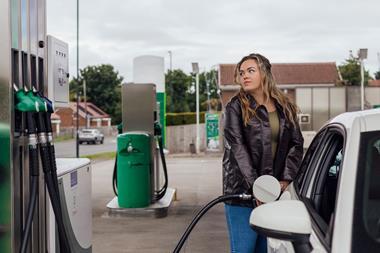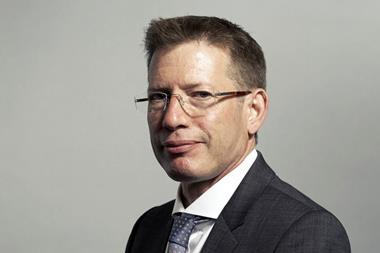
The Petrol Retailers Association (PRA) plans to “start ramping up the pressure” on government to help forecourt operators tackle rising crime amid a perceived lack of support from police.
Executive director Gordon Balmer told attendees at the first PRA Roadshow for 2024, in Knutsford on 7 March, that the association will be again trying to persuade the Driver and Vehicle Licensing Agency (DVLA) to extend access to an electronic reporting system for fuel theft.
Currently, forecourt operators must fill in lengthy forms reporting the vehicle keeper details before submitting them to the DVLA, which slows down the processing and also the ability to get the cash for the stolen fuel back. The PRA has been asking for parity with the car parking industry, which has access to the electronic system and can generate fines in 24 hours.
“The problem we have is that we are trying to lobby to get the keeper details back in a more timely manner – in other words in an electronic format,” said Balmer. “The response we keep getting is that the parking industry is given electronic access as it is a civil offence, not backed up by police.
“Drive-offs are a criminal offence, but police are not doing their job, so where will we go from here?
“The act of filling up without paying (bilking) is against the law. The issue is you must prove intent, but it is theft under the Theft Act of 1978,” he said. “We have to keep reminding the police that it is actually a crime.”
Balmer added that after he had submitted to the Department for Energy Security and net Zero’s consultation, on ‘Empowering Drivers and boosting competition in the road fuel retail market’, he would be back “on their case again on crime”. He said that he had already written to the Department of Transport and Home Office about the problem.
He will also follow up with the Metropolitan Police on a case he has been involved with, in which a PRA member in London reported a drive-off only to be told by an officer in an email that he should have invested in a prepayment pump and that the multi billion pound organisation he was part of could afford the hit.
Balmer said the incident was representative of a bigger picture in the industry. “A review of 1,500 shoplifting crimes nationwide in December had shown that 16% of forces had attended every shop theft involving violence, overall officers had still failed to turn up at 40% of such crimes,” he told delegates.
According to data from Forecourt Eye, the average value of fuel withdrawn as a result of no means of pay is now £69.90, compared with just over £51.20 for drive-offs.
Other areas that the PRA, which represents the owners of 4,800 of the UK’s 8,353 forecourts, will continue to work with the government on include business rates, which were left out of this week’s Budget. They are set to rise by another 6.7% in April, above the rate of inflation, adding to the extra costs that fuel retailers are having to bear, said Balmer. He is due to meet with the Valuation Office Agency today to “get the information process” started, covering England and Wales.
Balmer said that forecourt operators were investing in their businesses to support changes in consumer buying habits to local, fresh and more frequent food shopping. But rising costs and scrutiny over fuel price margins, alongside volatile wholesale prices, and fuel volumes 83% lower than pre-pandemic, made things difficult for them.
“If they [the government] want people to keep investing in their businesses and give the public what they actually want, they have got to have the capacity to earn that money. You can’t keep hammering them with increased costs and looking at the fuel margins all the time,” he said.
Balmer also told delegates that the PRA is working closer with opposition politicians, as polls show a large Labour lead ahead of an election this year. “We are starting to roll the pitch now, to engage with shadow counterparts, people like Shadow Secretary of State for Business Jonathan Reynolds , Shadow Home Secretary Yvette Cooper and Shadow Chancellor Rachel Reeves,” he said.
On the car washing side, its sister trade body, The Car Wash Association, will be meeting with Labour representatives to provide information on the problem of illegal hand car washes as part of discussions around modern day slavery. According to Nottingham Trent University the number of hand wash sites fell from 20,000 before the pandemic to 6,000 now, but enforcement is still needed to deal with sites not complying with environmental laws, paying taxes, or making sure their staff have the legal right to work in the UK. Balmer said The Car Wash Association’s Brian Madderson is working with the government to tackle this issue.
The closure of rogue sites has opened up the market for forecourt operators who are now investing in this area, with drive-through car wash operations delivering margins of up to 60% and low-cost standalone jet washers also proving very lucrative, said Balmer. “We have got an ageing population, and there’s still 33 million cars on the road,” he said. “When I was growing up that was my dad’s job on a Sunday morning, out there with a bucket and sponge washing our car. You very rarely see that these days.”
































